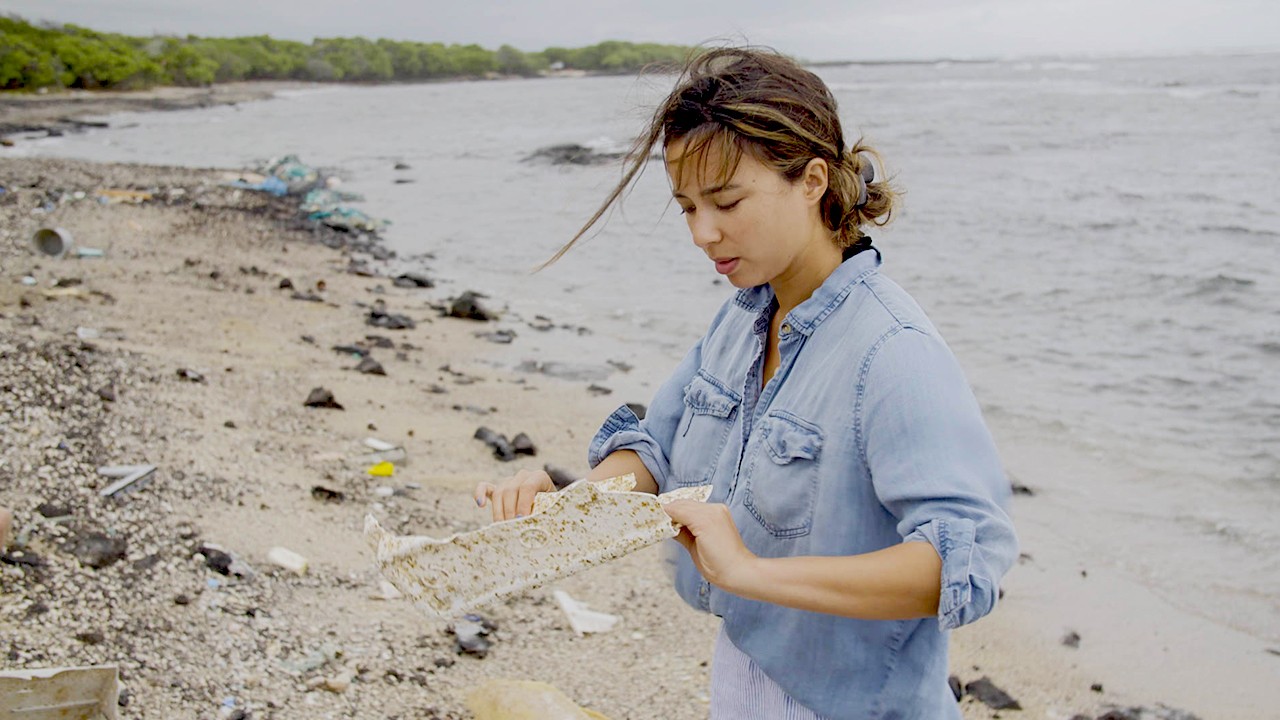The Canadian government is moving to ban the vast majority of single-use plastics, becoming the latest country to crack down on ubiquitous and seldom-recycled items like plastic forks.Prime Minister Justin Trudeau announced new plans to regulate plastic waste, much of which is recyclable in theory but usually ends up in landfills and waterways. Canadian media is reporting that a ban on many types of plastics could take effect as soon as 2021, and would cover things like plastic straws and single-use plates and cutlery.The plan involves declaring plastic waste a toxic substance under the Canadian Environmental Protection Act, an unnamed government source told the Globe and Mail.“Canadians know firsthand the impacts of plastic pollution, and they're tired of seeing their beaches, parks, streets, and shorelines littered with plastic waste,” Trudeau said in a statement.Read more: We're buying into a giant lie about plastic.The people who may know the impacts of plastics at least as well as the Canadians are those in Southeast Asian countries where Canada’s been dumping its plastic for the last year. The move to overhaul the country’s plastics production and recycling systems comes in the wake of a diplomatic dispute over plastic trash between Canada and the Philippines. Canada ultimately agreed to take back several tons of plastic waste that it had illegally shipped to the Philippines in 2013 and 2014. Malaysia announced last month that it, too, would be sending tons of unrecyclable plastic back to a handful of countries, including Canada.Only 9 percent of Canadian plastics get recycled — about the same as the percentage recycled worldwide.The growing understanding of the environmental threat that plastics pose has led to the swift roll out of taxes and bans across the globe. At least 127 countries have instituted some sort of new regulation on plastic bags so far, according to the U.N. Even one al Qaeda–linked group in East Africa, al-Shabaab, has banned the use of plastic bags, declaring them “a serious threat to the well-being of humans and animals alike,” according to the New York Times.In the U.S., some states have begun to ban certain types of single-use plastics. New York banned plastic bags earlier this year, and Seattle banned plastic straws in 2018. The EU is hoping to fully ban most single-use plastics, too. The European Parliament voted last year by a wide margin to stop using most plastics, with exceptions for things that don’t yet have eco-friendly alternatives, like sandwich boxes.And Kenya in 2017 put forward a full ban on plastic bags — with severe punishments for those who violated it. Producing, selling, or even carrying a plastic bag can land a person in prison four years or facing a $40,000 fine. It’s been heralded as having salutary effects on the country’s environment but has cost jobs and put additional burdens on the country’s poor.Kenyan officials say that the ban has sharply reduced plastic pollution in the country’s waterways. David Ong’are, the enforcement director of the National Environment Management Authority, said that slaughterhouses used to find plastics in the stomachs of three out of every 10 animals. Almost a year after the ban went into effect, that figure dropped to just one in 10, according to the Guardian.In Canada, the nixing of single-use plastics is expected to have economic impacts, too. The Canadian plastics industry brought in $35 billion in sales of resins and plastic manufactured goods in 2017, according to a study by commissioned by Environment and Climate Change Canada.By comparison, the country has a tiny recycling industry: Only 500 people in the country are employed in the industry that recycles all of Canada’s plastics, and the industry generated just $35 million in revenue.Officers from the Ministry of Environment examine a container full of non-recyclable plastic detained by authorities at the west port in Klang, Malaysia, Tuesday, May 28, 2019. (AP Photo/Vincent Thian)
The EU is hoping to fully ban most single-use plastics, too. The European Parliament voted last year by a wide margin to stop using most plastics, with exceptions for things that don’t yet have eco-friendly alternatives, like sandwich boxes.And Kenya in 2017 put forward a full ban on plastic bags — with severe punishments for those who violated it. Producing, selling, or even carrying a plastic bag can land a person in prison four years or facing a $40,000 fine. It’s been heralded as having salutary effects on the country’s environment but has cost jobs and put additional burdens on the country’s poor.Kenyan officials say that the ban has sharply reduced plastic pollution in the country’s waterways. David Ong’are, the enforcement director of the National Environment Management Authority, said that slaughterhouses used to find plastics in the stomachs of three out of every 10 animals. Almost a year after the ban went into effect, that figure dropped to just one in 10, according to the Guardian.In Canada, the nixing of single-use plastics is expected to have economic impacts, too. The Canadian plastics industry brought in $35 billion in sales of resins and plastic manufactured goods in 2017, according to a study by commissioned by Environment and Climate Change Canada.By comparison, the country has a tiny recycling industry: Only 500 people in the country are employed in the industry that recycles all of Canada’s plastics, and the industry generated just $35 million in revenue.Officers from the Ministry of Environment examine a container full of non-recyclable plastic detained by authorities at the west port in Klang, Malaysia, Tuesday, May 28, 2019. (AP Photo/Vincent Thian)
Advertisement
Advertisement
